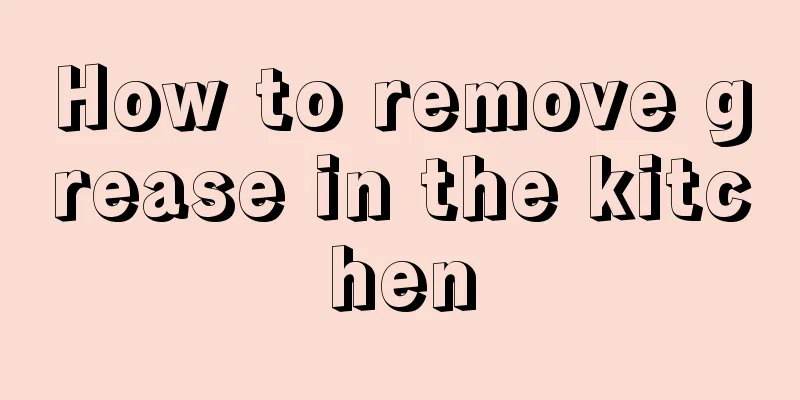What are the hazards of ultraviolet rays to the human body

|
Ultraviolet rays are a type of light that is very harmful to the human body, and the ultraviolet rays contained in the sun are very strong. However, as long as people do not stay in the sun for a long time, it will not cause serious harm to the human body. So in normal times, when the sun is strong, you should try to avoid being in the sun. So what are the hazards of ultraviolet rays to the human body? Let’s talk about it in detail below. Ultraviolet light is the general term for radiation in the electromagnetic spectrum with a wavelength ranging from 0.01 to 0.40 microns. The shorter the wavelength of ultraviolet rays, the greater the harm to human skin. Short-wave UV rays can pass through the dermis, while medium-wave UV rays can enter the dermis. In recent years, a large number of chemicals have damaged the ozone layer in the atmosphere, destroying this natural barrier that protects human health. According to a report provided by the National Meteorological Center, the total amount of ozone in my country's atmosphere has been decreasing year by year since 1979, and the ozone layer has decreased by 14% in 20 years. For every 1% decrease in the ozone layer, the incidence of skin cancer increases by 3%. Currently, the Beijing Meteorological Bureau has released the UV Index for Beijing to help people properly prevent UV radiation. The Beijing Meteorological Bureau reminds people that when the ultraviolet rays are the weakest (0-2 levels), they will not have much impact on the human body, so just wear a sun hat when going out; when the ultraviolet rays reach level 3-4, in addition to wearing a sun hat, you must also bring sunglasses and apply sunscreen on your body to avoid the harm of solar radiation to your skin; when the ultraviolet intensity reaches level 5-6, you must walk in the shade when going out; when the ultraviolet rays reach level 7-9, it is best not to go to the beach to sunbathe between 10 am and 4 pm; when the UV index is greater than or equal to 10, you should try to avoid going out, because the ultraviolet radiation at this time is extremely harmful. Ultraviolet rays harm the human body In the hot summer, it is difficult to avoid exposure to ultraviolet rays contained in sunlight. Excessive exposure to sunlight and ultraviolet rays can cause damage to human skin, eyes, immune system, etc. Ultraviolet rays can damage human skin cells, causing wrinkles, spots, and premature aging of the skin. In severe cases, it can cause solar dermatitis and sunburn, or solar keratosis of the skin and mucous membranes, leading to cancer. The eyes are sensitive organs to ultraviolet rays, which can damage the lens and are one of the causes of senile cataracts. During the scorching summer, the ultraviolet rays in the sun are strongest between 10 a.m. and 3 p.m. Outdoor activities should be avoided during this period to prevent ultraviolet rays from harming the human body. Even if you need to be outdoors during this period, don't forget to hold a parasol, wear a sun hat or sunglasses, use skin care products and sunscreens produced by regular manufacturers, and try to wear white or light-colored clothes to reduce ultraviolet radiation and prevent unnecessary damage to the human body. Although excessive ultraviolet rays can cause harm to the human body, the healthy growth of the human body cannot be separated from ultraviolet rays. 7-dehydrocholesterol in the skin is converted into vitamin D3 by light exposure. Vitamin D3 has important physiological functions in maintaining calcium ion concentration inside and outside human cells and regulating calcium-phosphorus metabolism. In countries with insufficient sunshine, rickets in infants and young children and osteomalacia and osteoporosis in adults are more common. The healthy growth of infants cannot be separated from adequate sunbathing, and the human body needs an adequate amount of ultraviolet rays, so an adequate amount of light is still necessary. The above is the harm of ultraviolet rays to the human body. After reading this introduction, you should pay more attention to avoiding the sun in your daily life. Especially in the summer. In addition to the strong ultraviolet rays in the sun, there are also strong ultraviolet rays in other lights such as ultraviolet lamps, so you must be extra careful. |
<<: Is haze harmful to human body?
>>: How to quickly remove odor after renovation
Recommend
How much TSH should be given for hemisection of thyroid cancer?
There is no clear clinical regulation on how much...
What are the symptoms of prostate cancer recurrence
What are the symptoms of prostate cancer recurren...
What is the reason for tooth chipping
People are very concerned about health issues, es...
What is the treatment plan for advanced laryngeal cancer
Laryngeal cancer usually requires reasonable trea...
Can endometrial cancer metastasis be cured?
Can endometrial cancer metastasis be cured? Cance...
How long do patients with advanced nasopharyngeal carcinoma survive?
How long do patients with advanced nasopharyngeal...
What are the benefits of washing your face with soap?
There are actually many benefits of washing your ...
Tips for removing hair balls from clothes
Each of us has different kinds of clothes. Summer...
Stay away from nine foods that really cause cancer
When talking about the rumor that food causes can...
The incidence of colon cancer is related to occupation
With the development of medical research, people ...
Introducing the four early symptoms of lymphoma
I believe everyone should be familiar with lympho...
What should you pay attention to when observing lung cancer symptoms
Lung cancer patients often show some common sympt...
What is the relationship between the five internal organs and beauty
People's lives are very busy nowadays. Some p...
Symptoms of esophageal erosion
Esophageal erosion refers to a phenomenon in whic...
What are the more obvious symptoms of cystitis
The occurrence of cystitis is mostly related to s...









